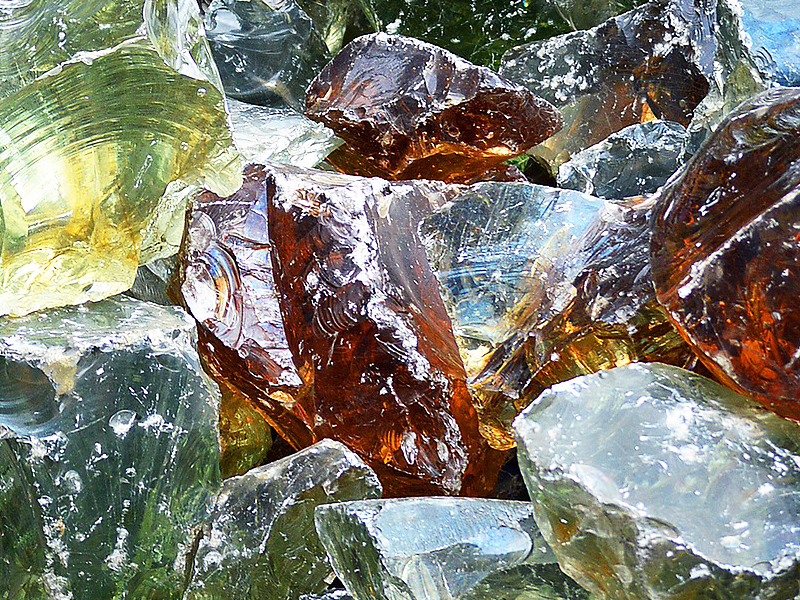
Glass is a beautiful material, and most of it is 100% recyclable. Unfortunately, broken glass is a recycling contaminant that devalues the other contents of a commingled recycling bin.
As some local governments in Washington consider steps to reduce the rising cost of their recycling programs, we've signaled our intent to increase the value of recycled commodities by investing a half-million dollars in local communities.
Ecology’s Recycling Development Center (Center) awarded a total of $504,073 to 10 local governments and one university to help develop and grow markets for recycled materials. The Center was established by the Washington State Legislature in 2019 to strengthen existing markets for recyclable materials.
Project proposals receiving these funds range from product-development-focused to direct support for recycling operations. The average award size is $42,006. Projects must be completed by June 30, 2021.
“Recent changes to some of the state’s local recycling programs are examples of the stark choices our government partners are facing in the midst of multiple emergencies, including the COVID-19 pandemic, world-wide economic upheaval, and the recycling crises,” says Center Coordinator Kara Steward. “Through these one-time awards, we are helping communities across the state develop sustainable domestic markets and identify market opportunities for recyclable materials.”
Award recipients
- Chelan County Public Works: $50,000 to purchase a glass pulverizer to recycle/repurpose post-consumer glass
- City of Leavenworth: $50,000 to research and identify solutions to divert commercial food waste from the landfill
- City of Seattle Office of Economic Development: $35,000 to create a “Circular Innovation Challenge” calling for product ideas and business plan proposals to reuse recycled materials from the region
- City of Tacoma: $25,000 to create a regional online materials marketplace platform in collaboration with Seattle Good Business Network and the U.S. Business Council
- Jefferson County Department of Public Works: $4,444 for a wood waste market development study
- King County Solid Waste: $50,000 to conduct a comprehensive recycling infrastructure analysis for the state, and create a database and map of current facilities; and $50,000 to research policy options, financial tools, and develop a business assistance program to increase use of recyclable materials
- Kittitas County Solid Waste: $40,000 to conduct a feasibility study and preliminary action plan focused on recycling market development
- Lopez Solid Waste Disposal District: $50,000 to fund start-up space for entrepreneurs to divert local recyclables and reusable material into marketable goods
- Port of Port Townsend: $50,000 to evaluate the feasibility of pyrolysis for plastics collected in the county compared to current waste disposal
- Seattle Public Utilities: $50,000 to conduct outreach and engage with the construction and demolition industry to develop the supply of recyclable & reusable wood
- Washington State University: $49,629 to conduct an in-depth analysis of plastic recycling supply chain in Washington
The Center
The Washington State Legislature established the Center in response to export market restrictions. Before the recycling crisis, more than 60% of the recycled material collected in Washington was sent overseas. After restrictions implemented by China and other nations resulted in the landfilling of recyclables, the need for more robust and sustainable domestic markets for these materials was apparent.
The Center’s initial focus is concentrated on supporting businesses and organizations that convert or remanufacture waste into new products, especially mixed-waste paper and plastics.
The Center is staffed by Ecology’s Solid Waste Management Program in partnership with the Washington Department of Commerce’s Office of Economic Development and Competitiveness. The Department of Commerce provides business, marketing, and technical assistance to support both public and private sectors. The Center’s work is guided by a 14-member advisory board representing public agencies, private industry, universities and nonprofits.
Learn more about the Center at ecology.wa.gov/RDC.

